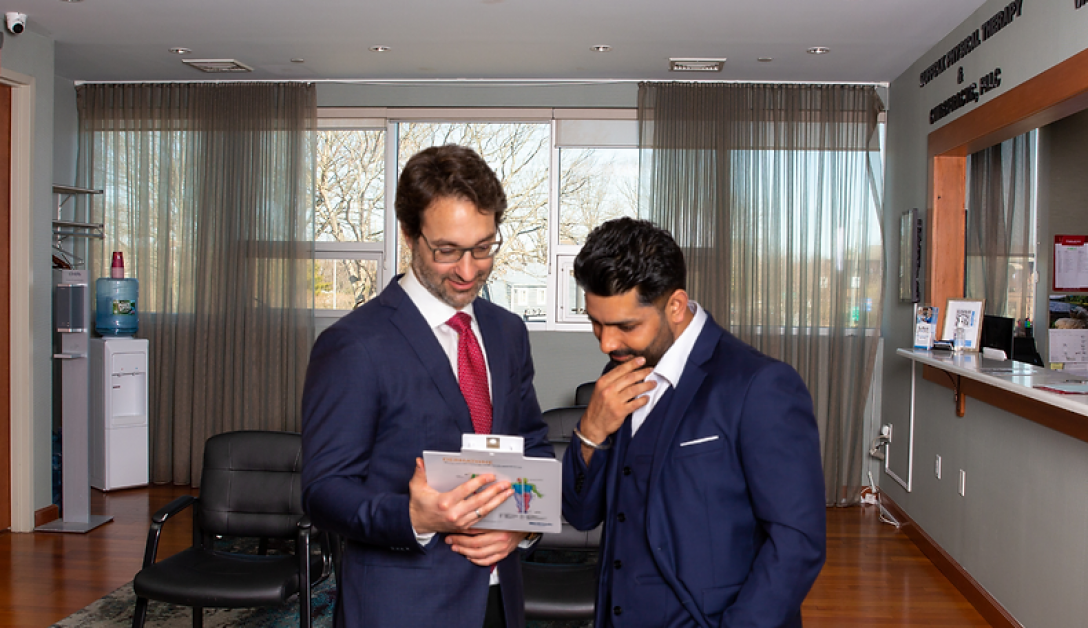If the Connecticut Department of Children and Families (DCF) has made a finding of substantiation against you, you have the right to appeal the finding through a substantiation hearing. To help you exercise this right and protect your best interests throughout the process, working with a skilled DCF family law attorney is strongly recommended. At The Christie Law Firm, LLC, we have years of experience and can represent you before and during the hearing process. Call us today to learn more.
What Is a Substantiation Hearing?
A substantiation hearing is an appeal following a finding of substantiation. A finding of substantiation is a decision issued by the DCF indicating that allegations of abuse or neglect have been substantiated. When the DCF receives a report of suspected abuse or neglect, it is required to open an investigation. At the conclusion of the investigation, it will issue a notice of its findings. If a finding of substantiation is issued, the party in question has 30 days from receipt of the notice to file an appeal.
During the substantiation hearing, a party can introduce new evidence and witnesses, as well as cross-examine witnesses. After the hearing is concluded, a notice of findings will be sent via mail. There is a process for further appealing the findings of the substantiation hearing if need be.
The Role of an Attorney During the Substantiation Hearing Process
If the DCF has issued a finding of substantiation and you want to appeal the process, it is strongly recommended that you exercise your right to legal counsel. The various ways in which an attorney will represent your interests and advocate for you include the following:
- File an appeal of a DCF substantiation decision. The first thing that your attorney will do is to help you understand your right to appeal and how the appeals process works. An appeal must be filed within 30 days of receipt of the notice of substantiation. An attorney will manage all of the filing documents on your behalf and ensure that you don’t miss the filing deadline.
- Question witnesses. As stated above, one of the rights of a person involved in a substantiation hearing is the right to question witnesses. Your attorney can prepare questions and manage the cross-examination process on your behalf. Questioning witnesses is one of the key elements of a substantiation hearing and is best managed by someone who is very experienced and understands how a hearing officer makes a decision.
- Review the evidence. The DCF will submit all of the evidence that it has against you. You have a right to review this evidence and prepare a response. What’s more, it’s important that you understand that the burden is on the DCF to prove a finding of neglect or abuse. Your attorney will review all of the DCF’s evidence and help you understand what it means for your case.
- Ensure that you do not breach the statute of limitations. If you breach the amount of time allocated under the law for filing an appeal (30 days), then your right to appeal is forfeited. One of the key roles of your attorney is to ensure that you do not breach the statute of limitations and that your right to appeal is protected.
- Understand the hearing officer’s decision. At the conclusion of the substantiation hearing, the hearing officer assigned to your case will issue a determination. Your attorney will explain the hearing officer’s decision to you and what it means for your case and your rights as a parent or guardian.
- Strategize your next steps. Finally, one of the most critical roles of an attorney is strategizing your next steps at each stage of the process, from when you first receive a substantiation letter to after the hearing officer’s notice of decision has been issued.
In addition to the above, your attorney will explain your legal rights and what the DCF can and cannot do throughout the process. Your attorney will also explain to you your options and what you may be able to do to improve the outcome of your case.
Is Working with an Attorney During a Substantiation Hearing Required?
There is no requirement to work with an attorney during a substantiation hearing; however, doing so is strongly recommended and may have a positive impact on the outcome of your case.
Call The Christie Law Firm, LLC Today
At The Christie Law Firm, LLC, we understand the stress and fear following the receipt of a DCF notice of the finding of substantiation. To learn more about how our law firm can help and the experience of our DCF family law attorney, call us directly at (860) 461-7494, send us a message online, or visit our Hartford office in person.





